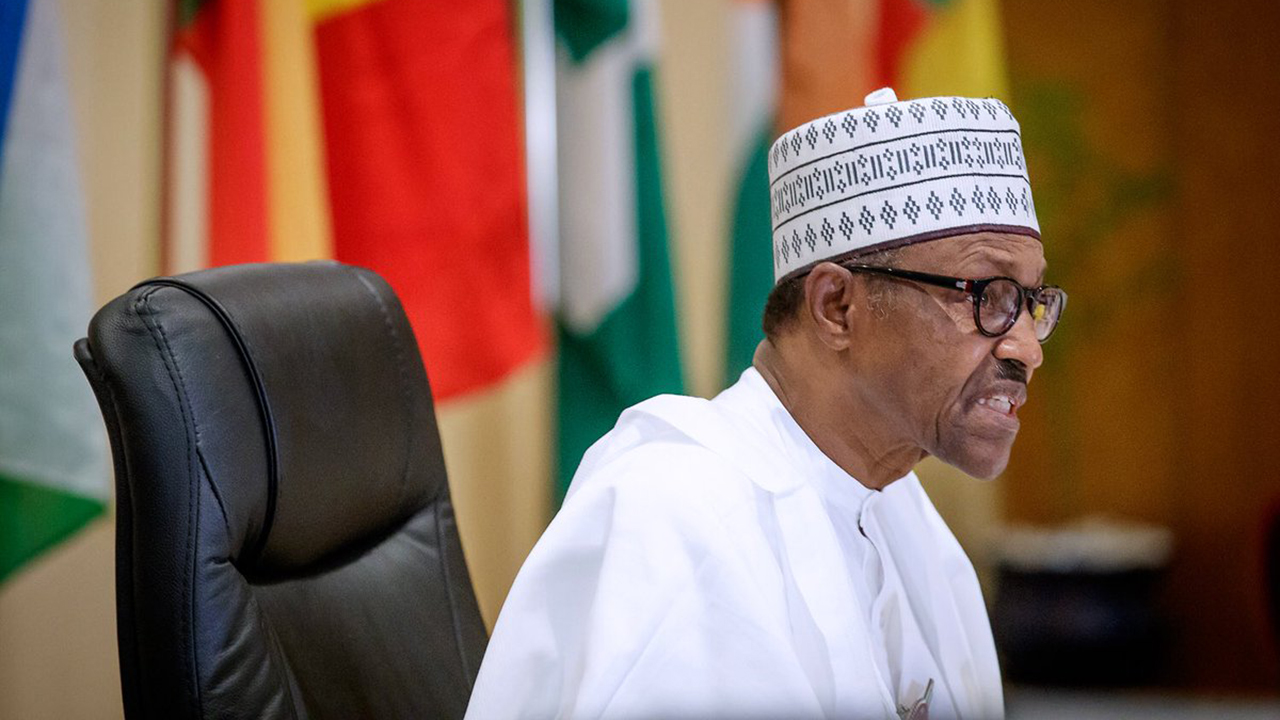A U.S. think tank that analyzes misinformation online said Friday that an Israel-based influence campaign busted by Facebook had stumped for the winning candidate in the February 2019 Nigerian presidential elections.
A new report from the Atlantic Council’s Digital Forensic Research Lab highlights sample posts removed from Facebook that appeared to praise incumbent President Muhammadu Buhari and smear his leading opponent, Atiku Abubakar.
Many of the pages and accounts were discovered to be linked to a Tel Aviv-based political consulting and lobbying firm named Archimedes. On its sparse website of African stock images, the company advertises its deliberate efforts to conduct disinformation campaigns, boasting that it takes “every advantage available in order to change reality according to our client’s wishes” through “unlimited online accounts operation.”
Facebook banned Archimedes from the platform Thursday for its “coordinated and deceptive behavior” and conducted a sweeping takedown of dozens of accounts and hundreds of pages primarily aimed at disrupting elections in African countries, with some scattered activity in Southeast Asia and Latin America. Overall, the misleading accounts had reached some 2.8 million users, and the pages had engaged over 5,000 followers, according to Facebook’s estimates.
One of the pages that Facebook cancelled appeared filled with viral misinformation attacking Abubakar, the former vice president of Nigeria. The page’s banner image showed Abubakar as Darth Vader, the Star Wars villain, holding up a sign reading, “Make Nigeria Worse Again.”
Another page with almost identical visuals, although significantly excluding the Darth Vader mask, purported to support Abubakar, with the slogan “Team Atiku For President.” The report identified the page as a covert attempt to infiltrate Abubakar’s audience of potential voters and manipulate their views, gradually spamming them with antithetical content and diverting them to the “Make Nigeria Worse” page.
The report also featured a page that explicitly lionized and boosted Buhari, with amateur videos eulogizing the accomplishments of his presidency as though he were not locked in a tight battle for re-election.
Yet another series of pages targeted the local Rivers state elections in Nigeria’s turbulent south, which was marred by widespread violence. Several of the removed pages attempted to defame a candidate from Abubakar’s People’s Democratic Party and boost his opponent. One page with artificially amplified audience engagement, called “Rivers Violence Watch,” pumped out political propaganda while posing as a neutral monitor of election violence, using the page description to mask its efforts.
Most of the pages claimed to be run by local Nigerian users, but in fact were managed from Israel.
Fake news flooded Nigerians and played a central role in the recent national election. Rumors, spreading like wildfire in Africa’s most populous country, became so outlandish and fevered that Buhari last year was compelled to declare publicly that he had not died and been replaced by a clone. More than a dozen media outlets joined forces before the election for a fact-checking initiative, while government officials acknowledged that fake news could be deadly in a country with multiple ethnic and religious fault lines.
The incumbent Buhari, who ran on promises to clean up government corruption, and his challenger Abubakar, who campaigned more on pocketbook issues, were in a dead heat as the election approached. The vote vaulted Buhari to a resounding victory, but remained clouded in controversy, with each side accusing the other of vote-rigging and Election Day violence halting ballot-counting and sparking dangerous rumors.
Despite the overt political messaging of these inauthentic pages, the Digital Forensics lab could not assign a particular ideological motive to Archimedes’ campaigns, given the diversity and scope of its general operations. Rather, the company, which poured over $800,000 into deceptive content over the past several years, appeared profit-driven. The report did not probe the origins of its cash flow, and it was not clear whether political actors in Nigeria or other countries where the campaigns took off had paid for the company’s “strategic consulting.”
“The fact the pages were operated by a for-profit company is a troubling sign that highly partisan disinformation is turning into a capital enterprise,” the report said.
Read more at NYTimes







